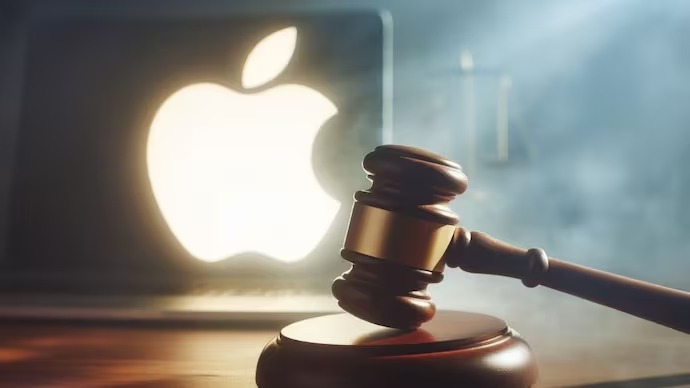US government sues Apple for monopolistic accusations; Apple responds that the government wants the iPhone to become an Android device: The plot in five parts
Apple is facing legal action from the US Department of Justice (DoJ), which claims the company has a “broad, sustained, and illegal” monopoly in the smartphone industry. According to the Department of Justice, Apple has stifled competition by restricting access to its hardware and software. Apple contends that the lawsuit “threatens who we are and the principles that set Apple products apart,” in contrast. The lawsuit seeks to change Apple’s business procedures. Here is a five-point summary of the lawsuit:

The lawsuit particularly challenges iMessage’s operation and the iPhone and Apple Watch’s ability to communicate with one another. According to the complaint, the goal of the lawsuit is to “free smartphone markets” from Apple’s anticompetitive actions. The corporation is accused of impeding innovation in order to preserve its dominant market position. According to a US attorney general quoted in The Guardian, “Apple has maintained its power not because of its superiority, but because of its unlawful exclusionary behavior.”
In response to the DoJ case, Apple said that the lawsuit is “wrong on the facts and the law” and that the US government just wants the iPhone to become an Android device. It claims that altering Apple policies would limit the services and technologies that the company can now provide to its customers. Apple claims that “it would also set dangerous precedents.”
“Our identity and the values that distinguish Apple goods in highly competitive markets are at risk due to this litigation. If it is successful, it will make it more difficult for us to develop the type of technology that Apple fans have come to expect—technology that combines services, software, and hardware. Additionally, it would create a risky precedent by giving the government extensive control over how people’s technology is designed. Apple released a statement saying, “We believe this lawsuit is wrong on the facts and the law, and we will vigorously defend against it.”
The complaint raises concerns about whether Apple’s practice of preventing competitors from using its exclusive services, such as Siri and iMessage, is anticompetitive. It also investigates whether Apple’s approach to device integration imposes unjust hardware restrictions, preventing rivals from entering the market. In its lawsuit, the Department of Justice charges Apple with engaging in anticompetitive practices that include limiting the functionality of smartwatches that aren’t Apple, limiting the use of third-party digital wallets, preventing cross-platform texting, and prohibiting creative applications. The main defenses used in the lawsuit against Apple’s market dominance and antitrust infractions center on the claim that these actions suppress competition and drive up consumer costs.
The US attorney general said that Apple “creates barriers and makes it extremely difficult and expensive for both users and developers to venture outside the Apple ecosystem.”
The lawsuit seeks to change a number of Apple’s operating procedures. The Department of Justice aims to stop Apple from using its own APIs and app store to obstruct the spread of cross-platform technology. At the conclusion of this, Apple may also be required to pay a sizable fine.
Amidst increased scrutiny of big tech, the US government has been looking into Apple for possible antitrust crimes since around 2019. The Federal Trade Commission’s antitrust lawsuits against Meta and Amazon, as well as Google’s search engine case in 2023, are the outcomes of this investigation. In the meantime, Apple is dealing with legal troubles in Europe, where authorities have fined the company over $2 billion for engaging in anti-competitive behavior.







